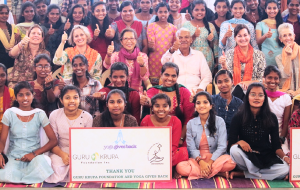Alex Counts, founding president of Grameen Foundation, speaks about his decades-long journey with Bangladesh’s microfinance movement and the mentorship of Nobel Laureate Professor Muhammad Yunus during an exclusive interview with the Dhaka Tribune.
Alex Counts” book includes significant portions about Yunus who shared stories from his youth and insights that went beyond what he published in Banker to the Poor. What Alex captured was through the lens of someone shaped by him — not just professionally, but personally.

In the world of microfinance, Bangladesh remains the beating heart of a global movement that continues to uplift millions—especially women—through financial inclusion. At the forefront of this revolution stands Professor Muhammad Yunus, the Nobel Peace Prize laureate and founder of Grameen Bank.
Speaking at a recent event, Yunus reflected on Bangladesh’s enduring role as a trailblazer in microcredit, a model that has inspired countless replications worldwide. What began as a modest initiative to lend small amounts to the rural poor has grown into a global blueprint for financial empowerment.
“The heart of microfinance beats strongest in Bangladesh.” – Prof. Muhammad Yunus

At a recent event, Nobel Laureate Muhammad Yunus reflected on Bangladesh’s pioneering role in microfinance—and what must come next. With over 9 million borrowers (most of them women), Bangladesh leads not just in access to credit but in empowerment through finance.
As the world shifts, Yunus urges innovation, youth leadership, and purpose-driven business to keep the mission alive.
Why Bangladesh?
It’s home to over 9 million microfinance borrowers, the vast majority of them women.
The country’s pioneering institutions like Grameen Bank and BRAC have created pathways out of poverty through accessible credit and community-based lending.
Microfinance in Bangladesh is more than loans—it’s about restoring dignity and agency to underserved populations.
With over 9 million women-led borrowers and a legacy of grassroots innovation, Bangladesh continues to lead the world in inclusive finance. But challenges remain: over-commercialization, digital access, and sustainability.
Looking Ahead: Challenges & Innovation
Yunus cautions against the commercialization of microcredit, warning that the focus must stay on empowerment, not profit. He advocates for youth leadership, technological innovation, and social business models to keep the microfinance movement sustainable and mission-aligned.
The Bigger Picture
Microfinance in Bangladesh is not just a development tool—it’s a testament to how bold ideas rooted in compassion can scale globally. As the world faces new economic and social challenges, Yunus’s vision remains a guiding light: finance must serve humanity, not exploit it.
Over the last eighteen years, YGB’s SISTER AID programs have successfully implemented micro-loan and early education programs that assist thousands of underserved women and children to lift themselves out of the cycle of generational poverty to build sustainable lives and a sense of self-worth.
We are adding new initiatives that fill critical gaps which persist among marginalized populations, depriving them of opportunities. These include Girls Digital Center, The Pad Project, and Project Shaale.
Learn more about Yoga Gives Back Micro Loan Program






